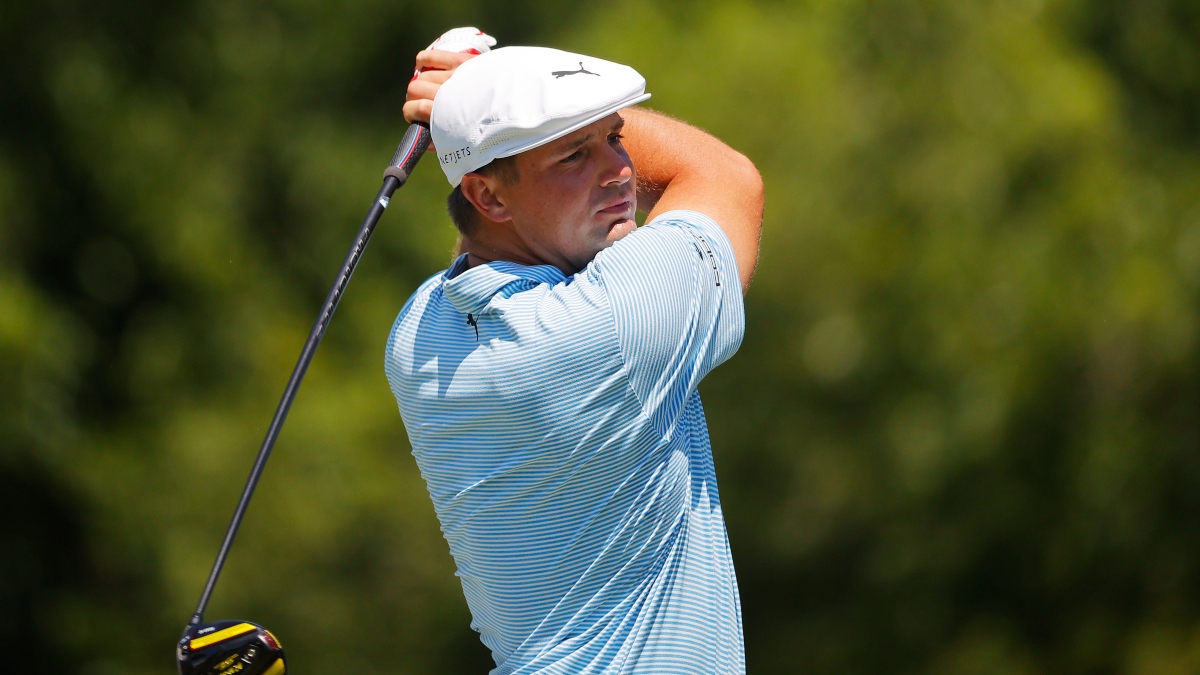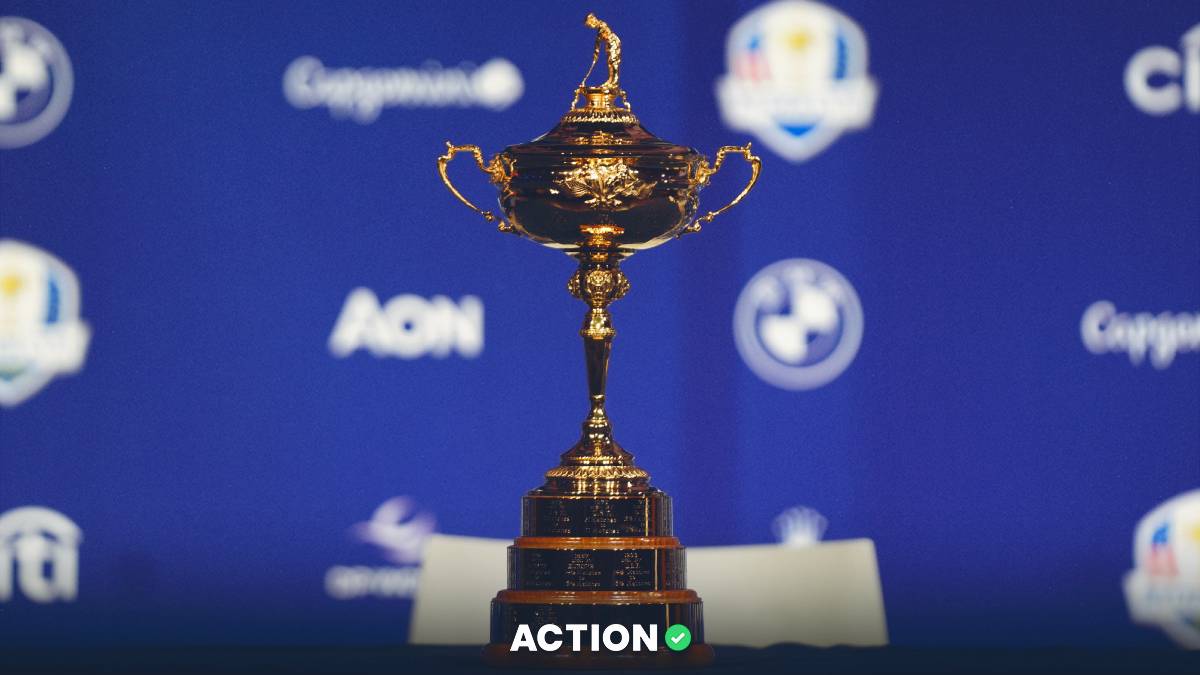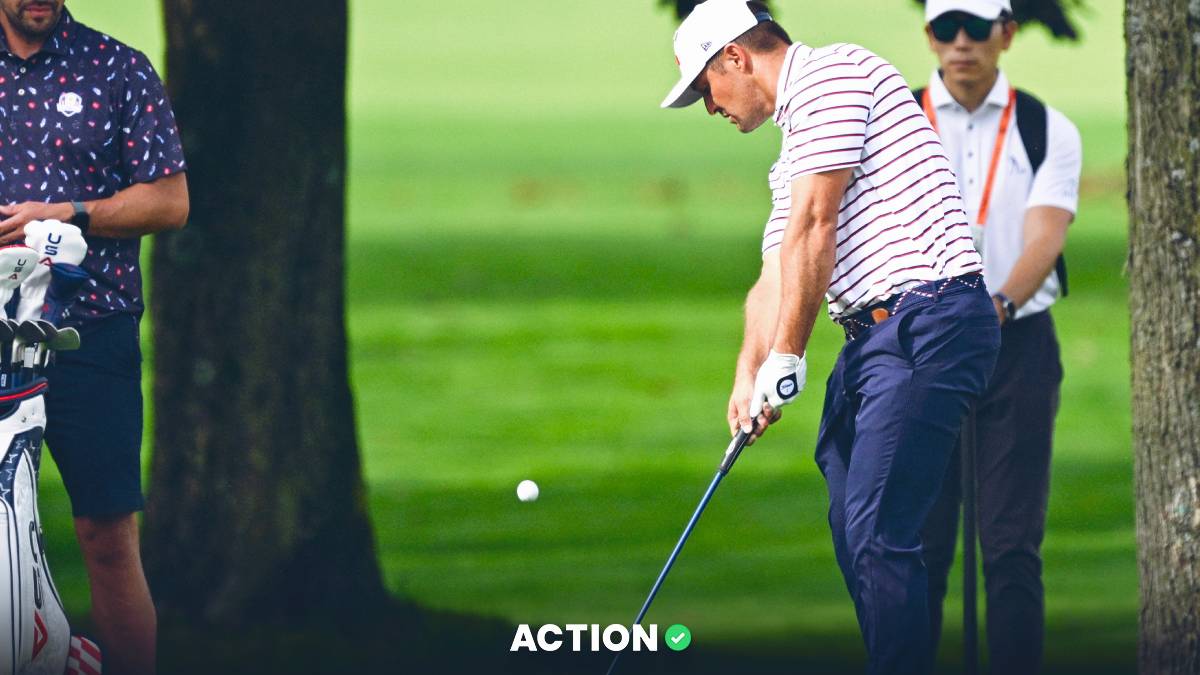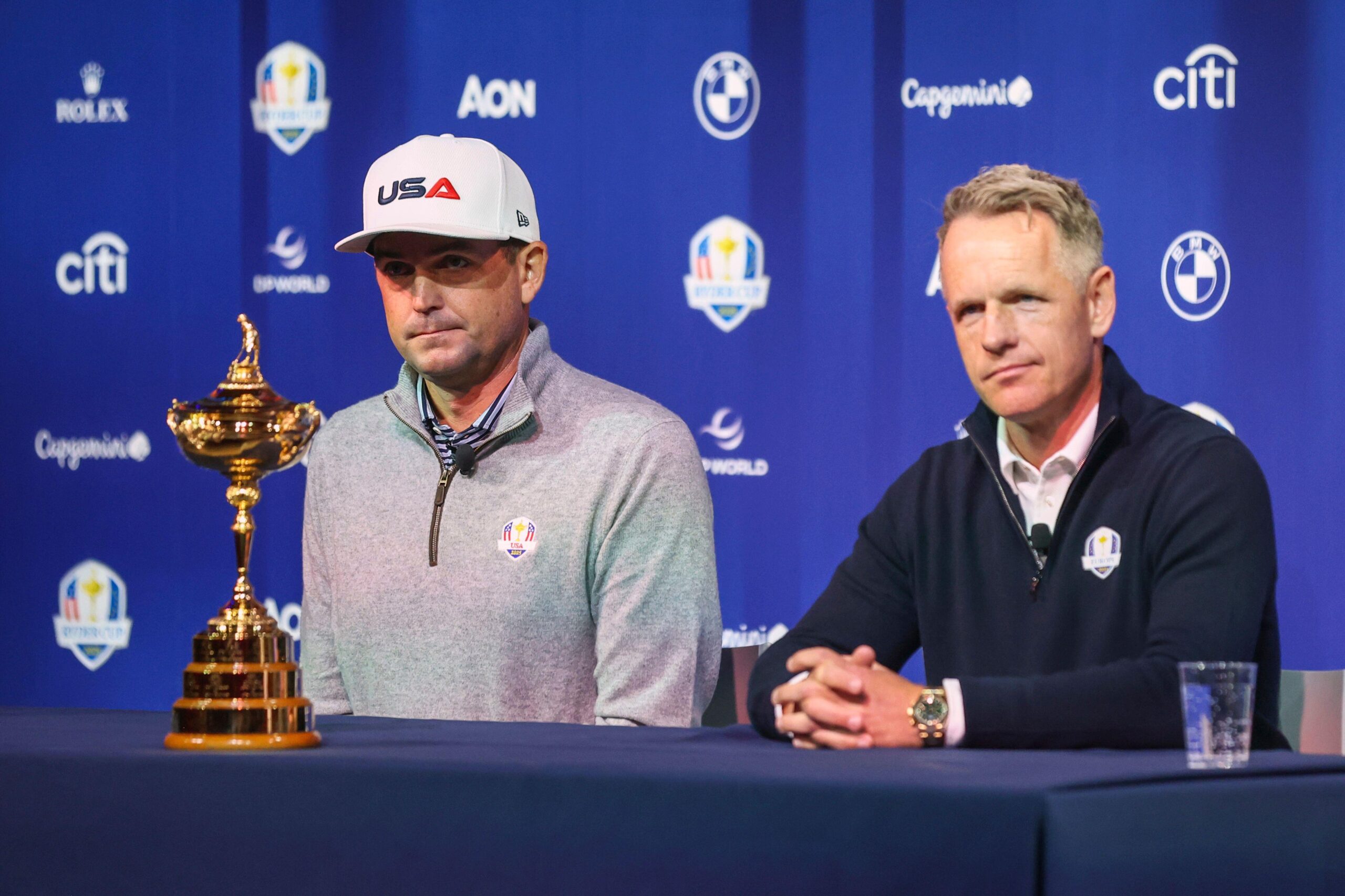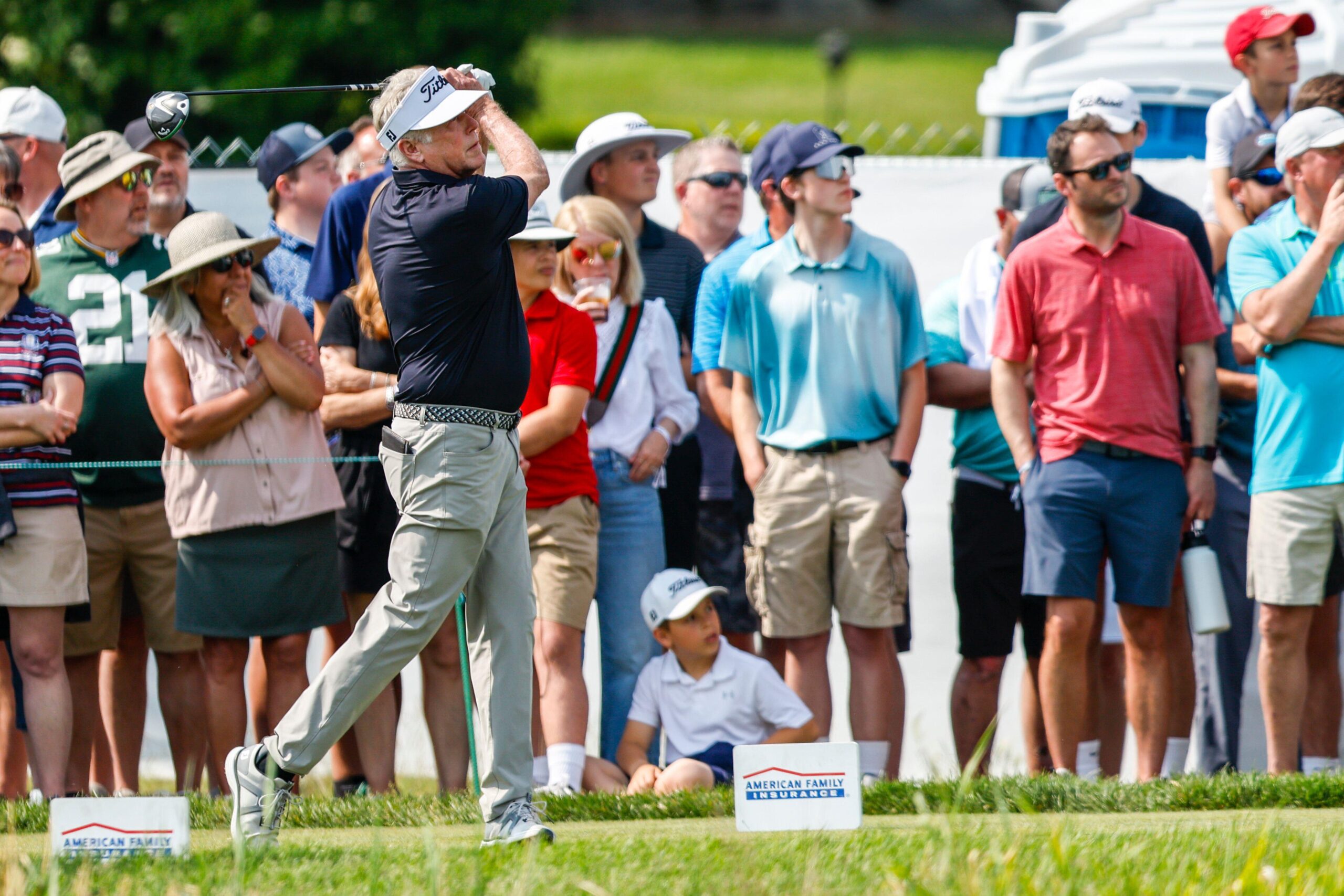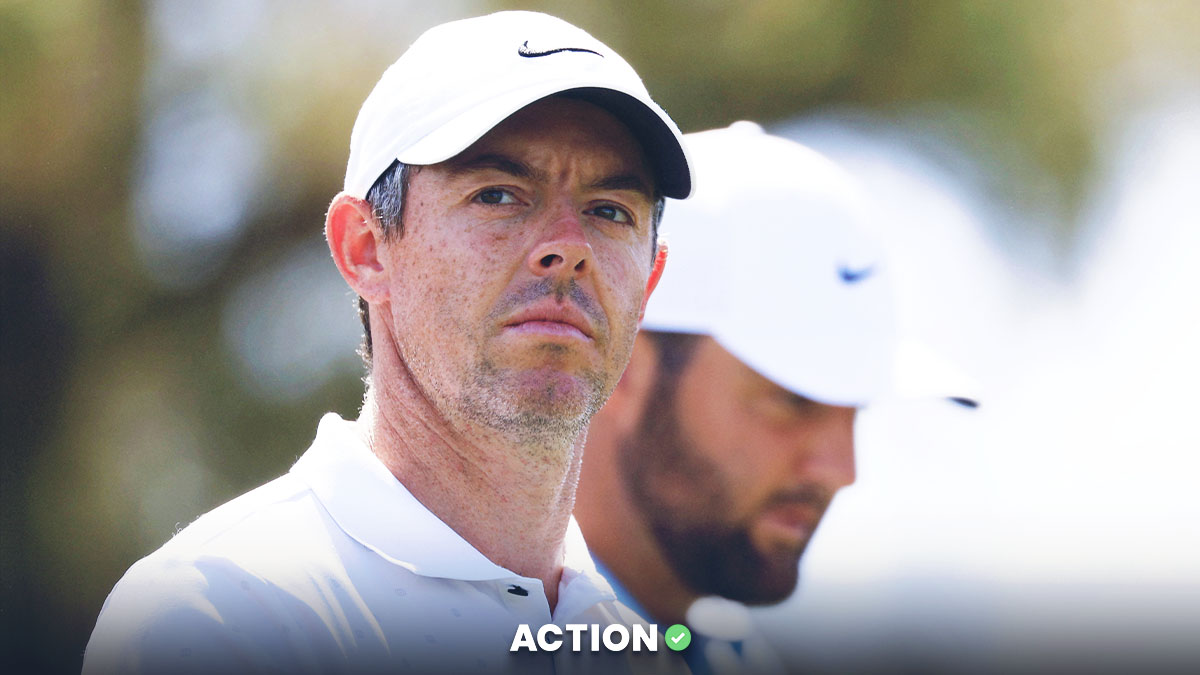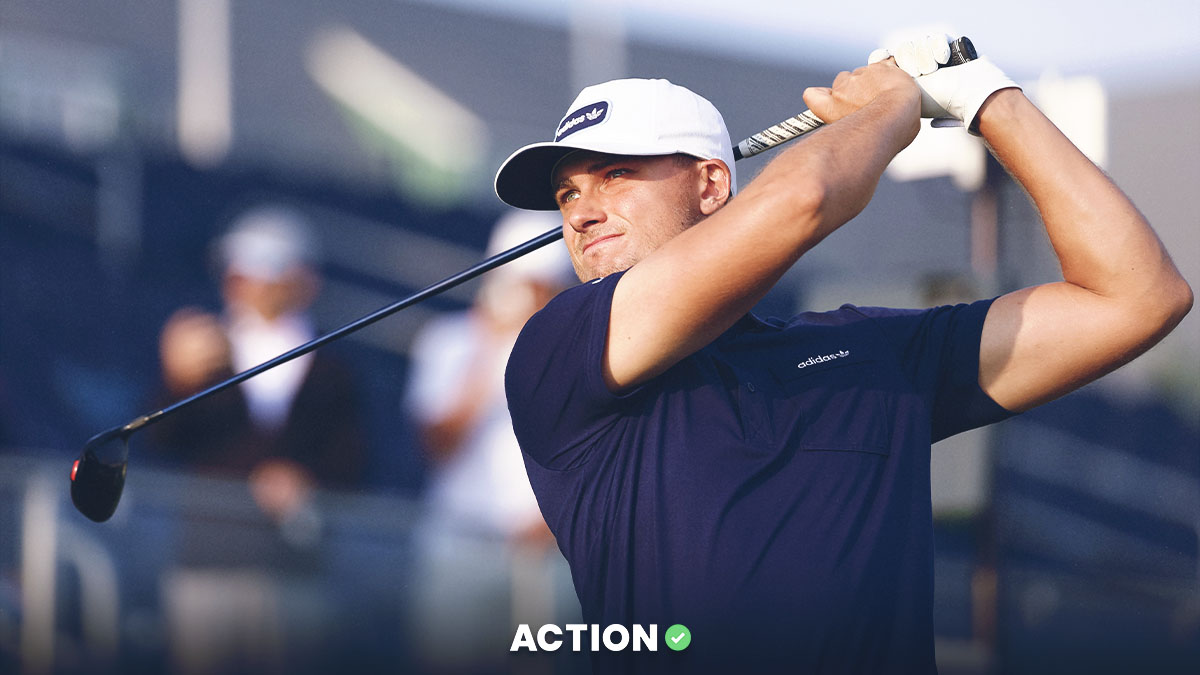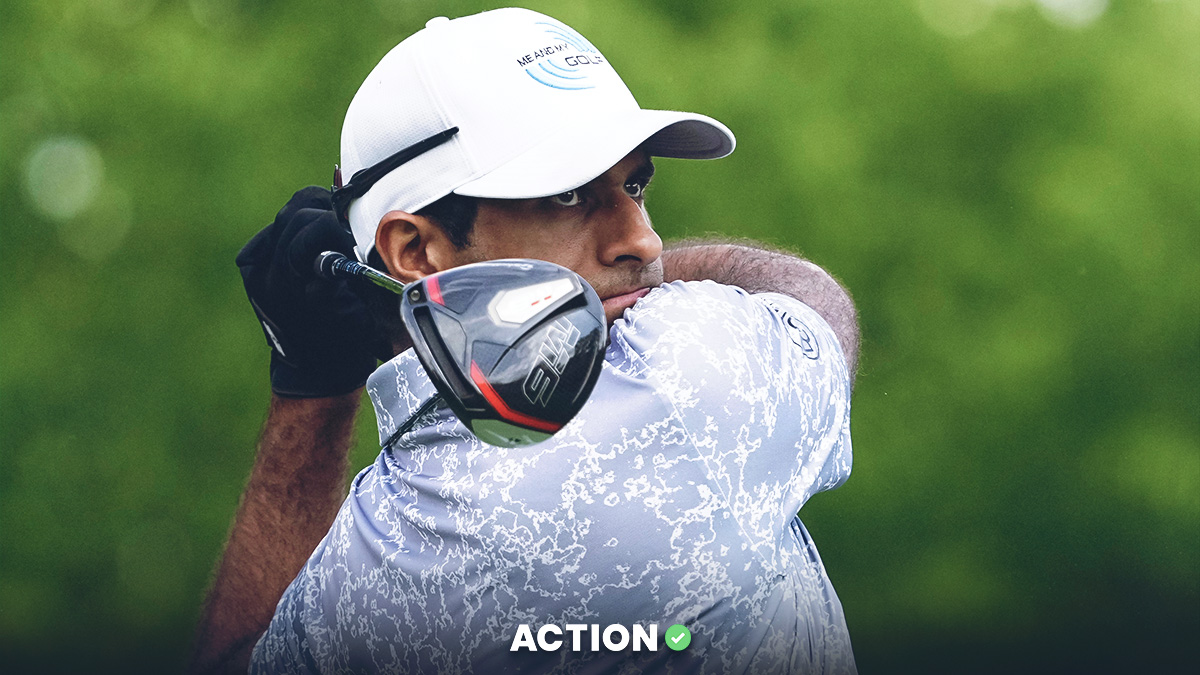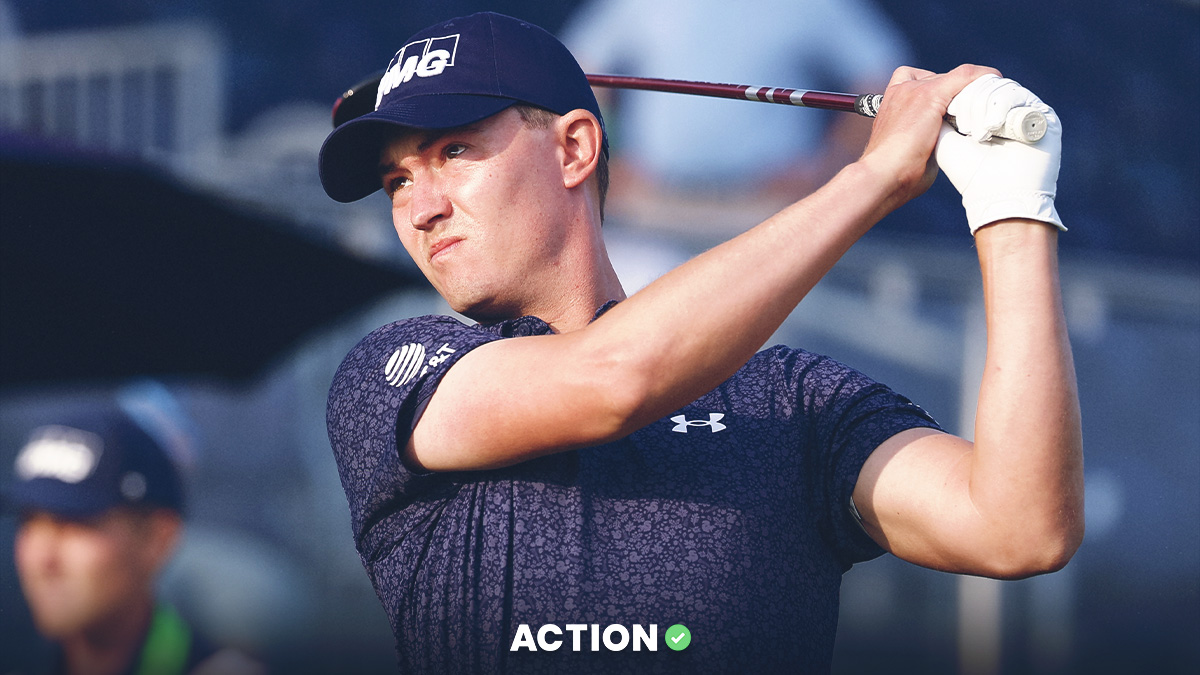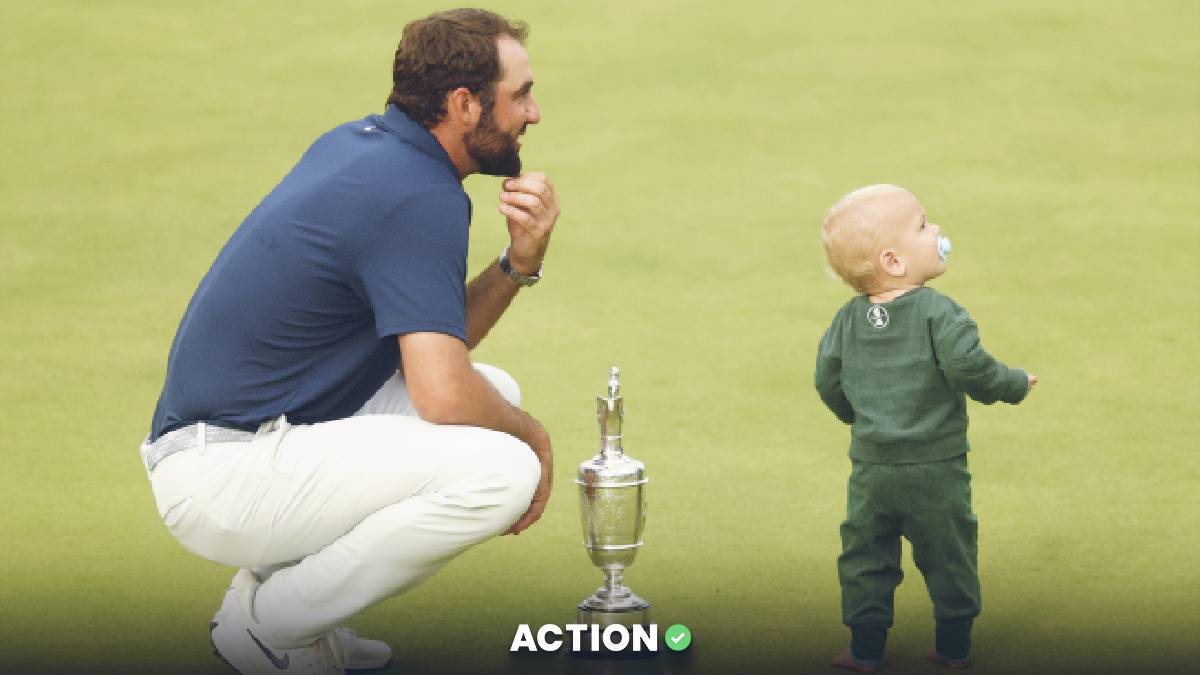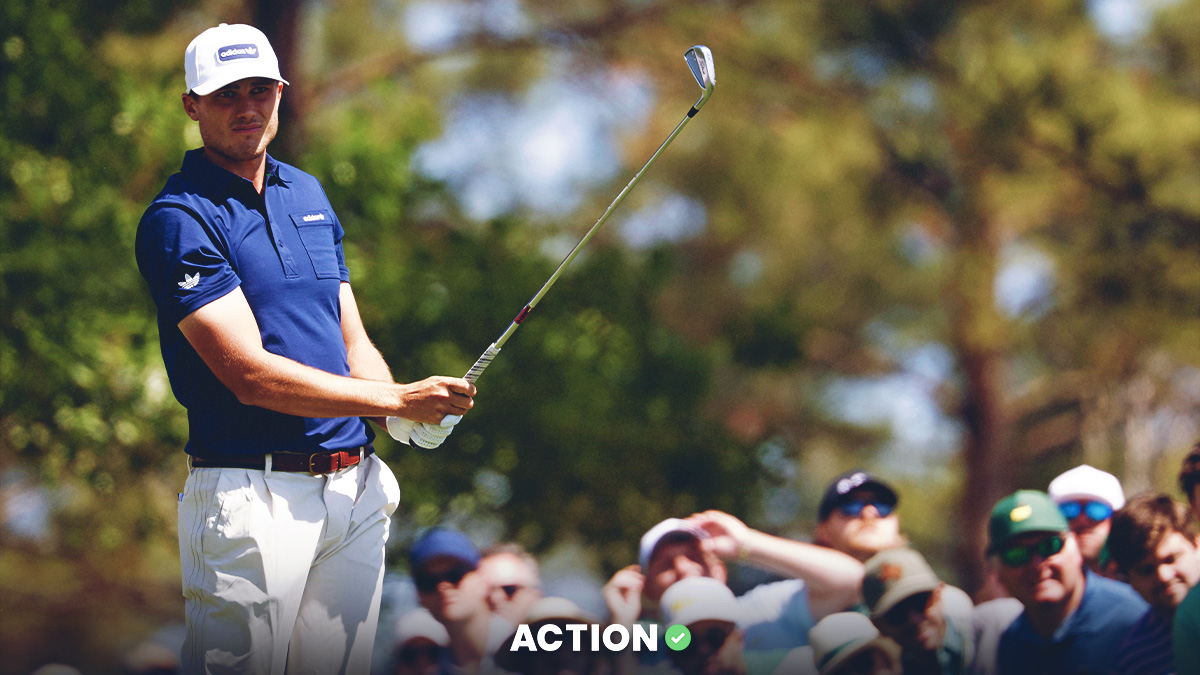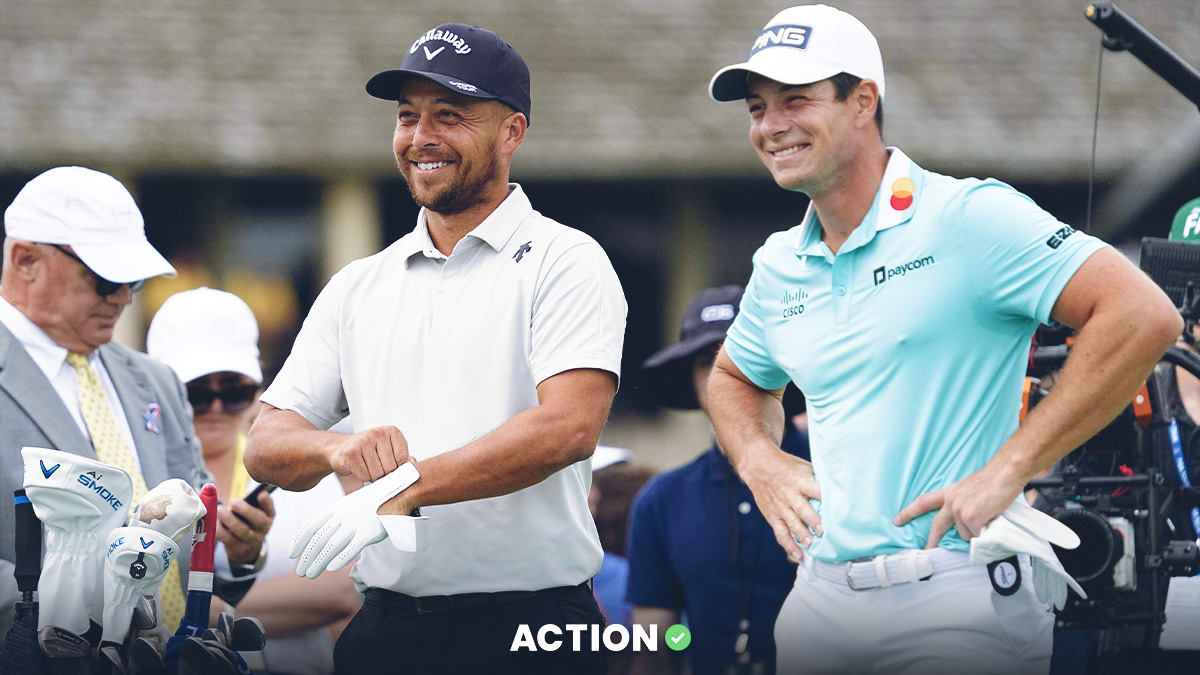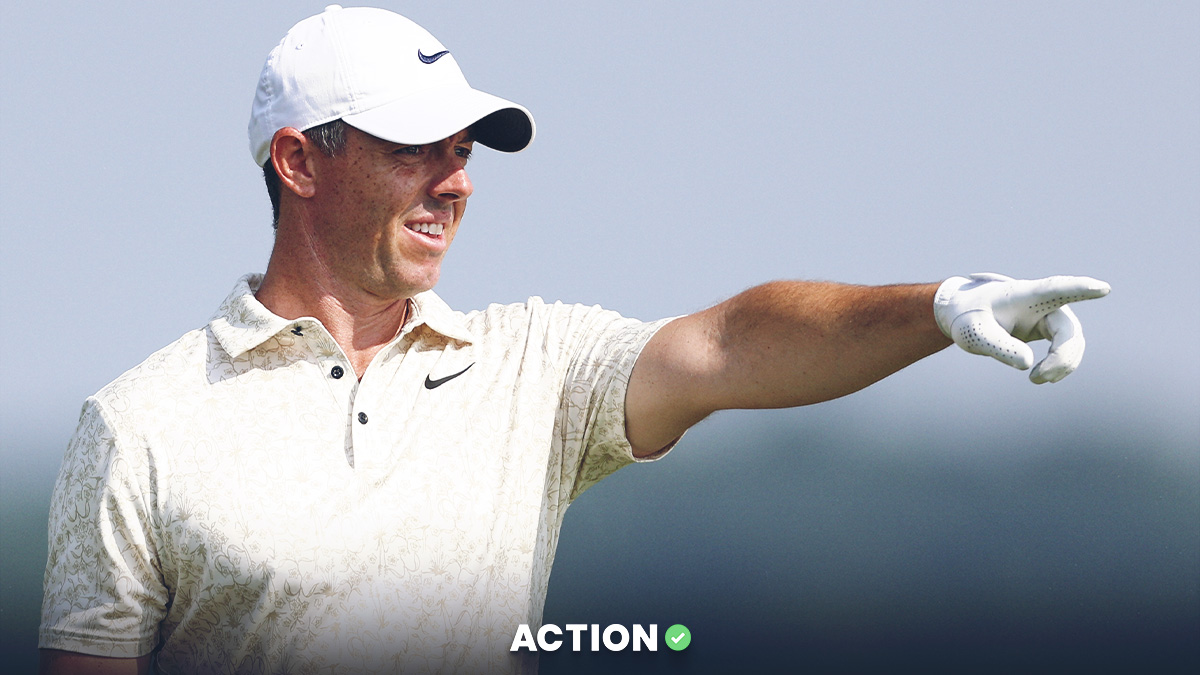Way back in 2016, I wrote about an idea called Vegas Bargain Ratings, which might sound more complicated than it actually is.
The basic premise: DraftKings salaries are highly correlated with odds to win the tournament, but it's not a perfect fit. By highlighting the golfers for which it's not correct — and this assumes that the liquid betting market is more efficient than static DFS salaries, which isn't a hot take — we can identify mispriced golfers, or ones that the betting market thinks are undervalued.
RBC HERITAGE PROMO! Win $100 if Rory McIlroy makes just ONE birdie all week.
We can do this exercise with a variety of metrics, including our catch-call metric, Long-Term Adjusted Round Score, which is the average strokes on a course with adjustments made to account for the difficulty of the course and the strength of the field.
So I can also compare Long-Term Adjusted Round Score to odds to win to identify which golfers are underpriced in the betting market relative to their long-term play.
That shouldn't be the end of the betting story — course fit and history are also important, as is recent play when there's not a layoff like we've had — but it is a valuable data point in researching for this week.
Let's start with the DFS side of things; betting will be in the section below.
The Best & Worst DFS Values According to the Betting Market
As usual, this exercise suggests that the very top players are underpriced by DraftKings. The reason is because of the salary cap: While there's a big discrepancy in to-win odds in the betting market between the top guys and the lower ones, the salary cap just doesn't allow for that difference to be as wide. The cheap golfers would have to be less than $6,000 or the upper tier would have to be more than the $11K range.
As such, Bryson DeChambeau, Rory McIlroy, Justin Thomas and Jon Rahm are all highlighted as values; DraftKings just can't get them high enough.
Of course, that doesn't mean you should blindly roster those players; golf is a very random game — Rory is the favorite but is still below 10/1.
But it does suggest that in huge tournaments — called GPPs in the DFS world — it makes sense to take a stars-and-scrubs approach most weeks. Think about it this way: In order to take down a tournament, you'll almost certainly have to have the winning golfer on your roster.
If you built a lineup just by implied odds to win the tournament, it would thus always have one and likely two of the top guys in the betting market — just because they own so much win equity but hold less salary equity on DraftKings.
That doesn't mean you blindly do stars-and-scrubs; there's a lot more to tournaments every week, notably public sentiment and ownership. But overall, DraftKings is set up to where that's the highest +EV strategy if you want to maximize your odds of rostering the week's winner. You'll have to do the calculations whether that will be over-utilized by the public or not.
The Best & Worst Betting Values According to Adjusted Round Score
Again, we can do this same strategy with Long-Term Adjusted Round Score and outright odds. Using a regression, we can "predict" what a player's implied probably should be and compare it to their actual implied probability to win.
Of course, there are some complications here, too. Notably, there's more to handicapping than just long-term play. Course history and fit really matter, as does current form and a lot of narrative-driven factors. Further, long-term metrics may not capture a young golfer on the upswing, like Collin Morikawa for example.
Further, betting markets have juice, and notably it's not evenly distributed across all the golfers evenly. Thus the implied probabilities for both actual odds and predicted odds add up to over 100% — I kept it that way just because of the uncertainty of the hold. This is more of an exercise to identify mispriced golfers than something that should be used in an optimizer anyway.
Regardless, it does show that some of the studs that have been depressed in price for whatever reason — the strength of the field, current form, etc. — are values according to their long-term talent. Dustin Johnson, Rickie Fowler and Webb Simpson are great examples of this dynamic.
Of those, I'm still worried about DJ; I wrote up last week that he would miss the cut at Colonial, and he did just that. The former No. 1 obviously has all the talent in the world, but I don't trust his form and I'm worried he's not completely healthy right now.
Webb is the guy to target I think. He was my pick to win this week, and his price at 30/1 really undervalues his talent and course fit at Harbour Town. He should be more in the 15-20/1 range with some of the higher studs, and thus I think he's a really nice value even though he's not a pure longshot.
Good luck this week!


